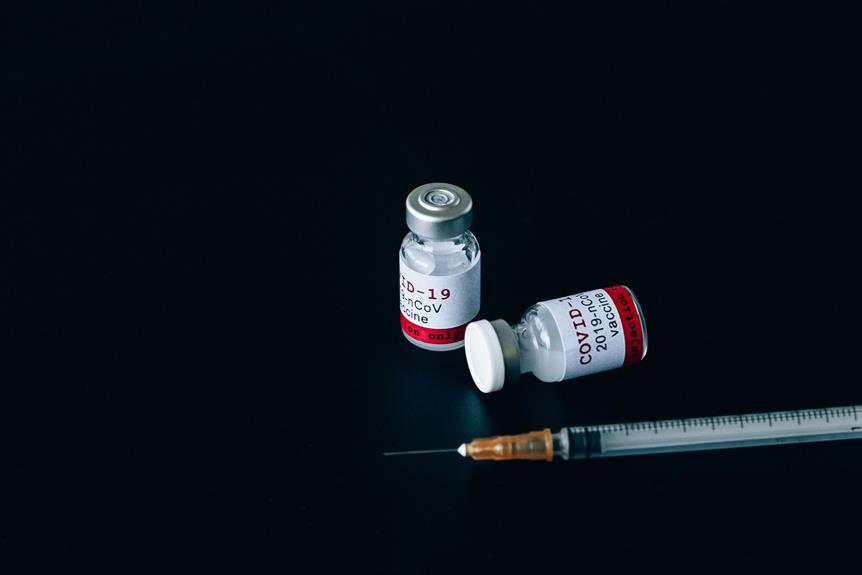Parkinson's Disease Claims
Parkinson's disease is a degenerative neurological condition that manifests through motor and non-motor symptoms, adversely affecting millions worldwide. In recent years, legal claims linked to Parkinson's disease have emerged, focusing on the alleged correlation between toxic environmental exposure and the development of the disorder. Individuals who have been diagnosed with Parkinson's disease and believe it to be the result of hazardous substances, such as industrial chemicals or contaminated water supplies, may seek legal redress. Expert legal firms, adept in environmental and toxic tort law, offer representation to these claimants, aiming to secure fair compensation for medical costs, lost income, and other damages. These claims underscore the need to address potential environmental triggers of neurological diseases and the role of legal systems in providing recourse for affected parties.

Key Takeaways
- Environmental Litigation Group P.C. has extensive experience in processing claims for toxic exposure-related illnesses, including Parkinson's disease.
- Exposure to harmful substances such as solvents, PCBs, PFAS, and paraquat can increase the risk of developing Parkinson's disease.
- Camp Lejeune, a military base associated with toxic contamination, is linked to cases of Parkinson's disease.
- Eligibility criteria for filing a claim for Parkinson's disease related to water contamination at Camp Lejeune include being a veteran, drinking contaminated water on the base, and having a diagnosis of Parkinson's disease related to water contamination.
Understanding Parkinson's Disease
Understanding Parkinson's Disease involves recognizing it as a progressive neurological disorder that primarily affects movement, often starting with subtle tremors in one hand. Parkinson's disease research has made significant strides in understanding both the genetic and environmental factors contributing to the development of the disease. Environmental factors, such as exposure to certain pesticides and industrial chemicals, have been identified as increasing the risk of developing Parkinson's disease. Studies suggest that long-term exposure to these toxins can lead to the degeneration of neurons in the brain responsible for the regulation of movement. This research is critical in developing preventive strategies and informs legal practices, such as those involving claims for compensation related to toxic exposures that may be linked to Parkinson's disease.
Environmental Toxins and Risks
Exposure to environmental toxins such as pesticides and industrial chemicals significantly increases the risk of developing Parkinson's disease. Robust environmental regulations are vital in controlling the release and exposure to these hazardous substances. Public health advocacy plays a crucial role in raising awareness about the potential risks of environmental toxins and in pressing for stricter controls. The link between environmental toxins and Parkinson's disease underscores the importance of protective measures and rigorous enforcement of safety standards to mitigate exposure risks. It is imperative that individuals, especially those working in high-risk industries or living in contaminated areas, are informed about the potential dangers and provided with avenues for redress, should they suffer from toxin-induced health conditions like Parkinson's disease.
Parkinson's Disease Symptoms
Parkinson's disease's symptoms manifest progressively, often starting with subtle tremors and evolving into more severe motor and non-motor challenges. As parkinson's disease research advances, understanding the full spectrum of symptoms is crucial for early detection methods that can lead to improved patient outcomes. Motor symptoms typically include bradykinesia (slowness of movement), muscle rigidity, and postural instability, which can result in difficulty with walking and balance. Non-motor symptoms, increasingly recognized by researchers, encompass a range of issues such as cognitive impairment, mood disorders, sleep disturbances, and autonomic dysfunction. Early detection and intervention are vital, as they can significantly slow down the disease's progression, necessitating ongoing research to refine diagnostic techniques and develop new therapeutic strategies.
Legal Support for Victims
Victims facing the challenges of Parkinson's disease due to toxic exposure can seek legal assistance to pursue compensation for their suffering and financial losses. The complex landscape of toxic exposure litigation requires expert navigation, and specialized law firms are equipped to offer comprehensive support. They can provide crucial guidance on eligibility, evidence collection, and the intricacies of filing claims. With seasoned attorneys, victims can effectively assert their right to legal compensation, holding responsible parties accountable for negligence or failure to protect against harmful environmental factors. Legal advocates strive to ensure just recompense for the physical, emotional, and economic hardships endured by individuals with Parkinson's disease as a result of toxic exposure.
Camp Lejeune Water Contamination
One significant source of toxic exposure leading to Parkinson's disease claims is the water contamination incident at Camp Lejeune, a military base where service members and their families were exposed to harmful chemicals over decades. The water contamination lawsuits emerging from this incident highlight the severe health hazards associated with military base residences. Evidence has shown that various neurotoxic solvents present in the base's water supply, such as trichloroethylene and perchloroethylene, have contributed to an increased risk of Parkinson's disease among those exposed. These military base health hazards have prompted legal action to seek compensation for affected individuals. The litigation process demands a thorough demonstration of exposure and its direct link to the development of Parkinson's disease, underscoring the need for robust legal representation for victims.
Paraquat Exposure Concerns
The use of paraquat, a potent herbicide linked to a significantly increased risk of Parkinson's disease, raises serious concerns for the health and safety of agricultural workers and their families. Research indicates that farm worker health risks are substantially heightened with paraquat exposure, leading to a 250% increase in the likelihood of developing Parkinson's disease. The persisting presence of toxic vapors from paraquat application endangers not only workers but also their close contacts, amplifying the urgency for stringent environmental regulations. Addressing these risks necessitates a comprehensive review of current agricultural practices and the enforcement of safety measures to protect those who are most vulnerable to the herbicide's harmful effects. Ensuring regulatory compliance and advocating for safer alternatives are critical steps in mitigating these serious health threats.
Eligibility for Toxic Exposure Claims
Determining eligibility for toxic exposure claims requires individuals to provide evidence of their contact with harmful substances and a subsequent diagnosis of Parkinson's disease. To establish a successful claim, it is essential to demonstrate the nexus between parkinson's disease causes and the toxic exposure in question. Claimants generally need to substantiate their exposure through employment records, military service documentation, or residency near contaminated sites. Once this connection is verified, individuals can pursue toxic exposure compensation. Legal precedents and statutes outline specific criteria for eligibility, which may include the duration and extent of exposure, as well as the time frame between exposure and diagnosis. Precision in documenting these details is crucial to support a compensation claim effectively.
Filing a Claim Successfully
To ensure a successful Parkinson's disease claim, claimants must meticulously prepare and submit all required documentation, demonstrating a clear link between their exposure to toxic substances and their diagnosis. The filing process is a critical stage where attention to detail can significantly impact the outcome. Claimants should be aware of the various compensation options available and choose the one that aligns with their specific circumstances. It is essential to adhere to strict deadlines and guidelines set forth by the entity or court handling the claim. Legal representation may provide crucial support in navigating the complexities of the claim process, ensuring that all aspects are handled professionally. Ultimately, a well-documented case increases the likelihood of a favorable resolution and appropriate compensation for the claimant's suffering and losses.
Veterans and Family Members' Rights
Veterans and their family members who have been affected by Parkinson's disease due to toxic exposure at places like Camp Lejeune have specific rights to seek compensation through legal claims. These individuals are entitled to veterans' compensation for health issues stemming from service-related toxic exposure. Legal representation plays a crucial role in navigating the complexities of compensation claims. Experienced attorneys can provide guidance on the eligibility criteria, ensuring that veterans and their loved ones receive the benefits they deserve. As advocates for those impacted by Parkinson's disease, legal professionals strive to secure justice and financial support, recognizing the sacrifices made by service members and the hardships faced by their families due to debilitating health conditions linked to their honorable service.
Diagnosis and Medical Evidence
Securing a Parkinson's disease claim hinges on providing comprehensive medical evidence to substantiate the diagnosis and its link to toxic exposure. The diagnosis challenges of Parkinson's disease often lie in its symptoms' similarity to other movement disorders, making the importance of medical records paramount. Neurological examinations, coupled with imaging tests like MRI or CT scans, form the cornerstone of a reliable diagnosis. Blood tests, although less definitive, can also support the diagnosis. Precise medical records detailing a patient's history, symptoms, progression, and response to treatment are crucial. These records not only confirm the diagnosis but also establish the necessary causation between Parkinson's disease and toxic exposure, forming the bedrock of a valid legal claim.
Treatment Options Available
Treatment options for Parkinson's disease encompass medication management, surgical interventions, and various forms of therapy to alleviate symptoms and improve quality of life. Medications like levodopa and dopamine agonists are central in managing motor symptoms, while deep brain stimulation surgery offers an alternative for those with advanced Parkinson's or when medication efficacy wanes.
Therapeutic support includes physical, occupational, and speech therapies, each tailored to address specific functional impairments. Additionally, alternative therapies such as acupuncture, tai chi, and nutritional supplementation are being explored for their potential benefits. Ongoing research advancements continue to refine these treatments and explore neuroprotective strategies, with the aim of slowing disease progression and enhancing patient outcomes. As our understanding of Parkinson's evolves, treatment options will likely expand, incorporating novel approaches and personalized medicine.
Navigating Financial Impacts
The financial burden of Parkinson's disease can be substantial, encompassing ongoing treatment costs, potential loss of income, and the need for specialized care. Patients and their families must navigate these expenses while managing the disease's physical and emotional impacts. Fortunately, there are avenues for financial assistance and support services designed to alleviate some of the economic strain. These resources can provide help with medical bills, access to affordable medication programs, and connections to local support networks that offer practical advice and emotional support. It is essential for those affected by Parkinson's to explore all available options, including government benefits, charity programs, and legal avenues for compensation, to ensure they can maintain their quality of life and focus on treatment and well-being.

This post has been generated by AI and was not reviewed by editors. This is Not legal advice. Please consult with an attorney.




